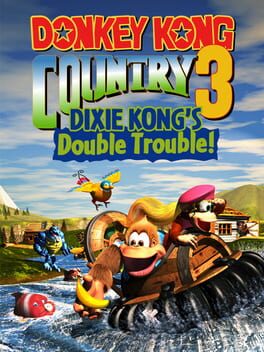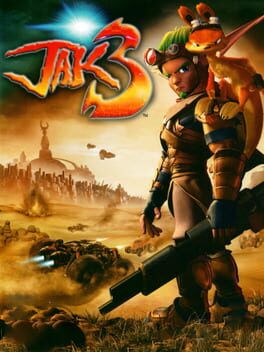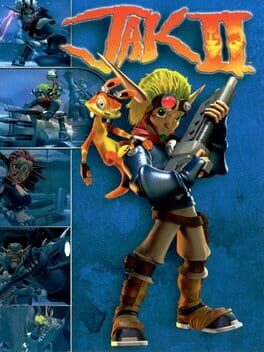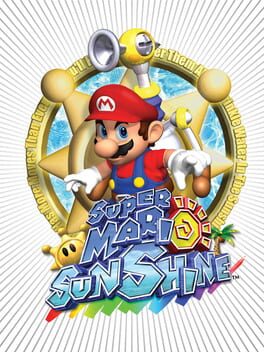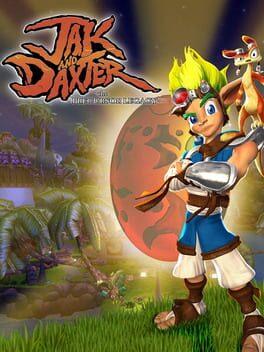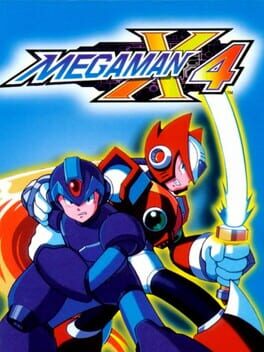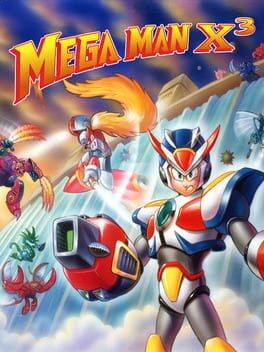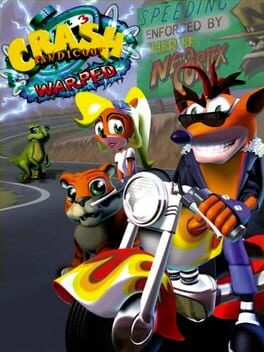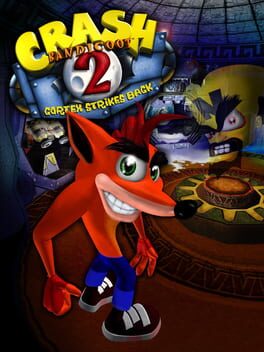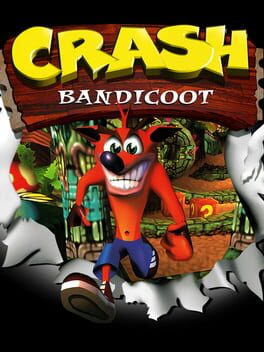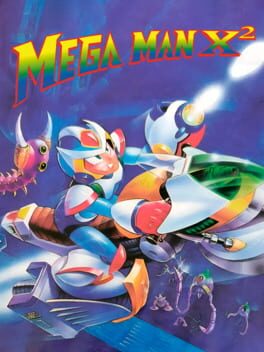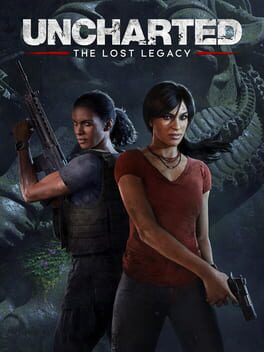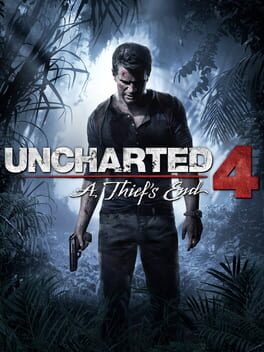RandomContent
2009
The prototype Souls game.
Before I dive in, let me make one thing very clear. This is a review of the original release of the Demon's Souls on PS3: I HAVE NOT PALYED THE PS5 VERSION; THIS IS NOT A REVIEW OF THE REMAKE. Maybe the remake fixes every single problem I have, and maybe it's a phenomenal game. I will probably review it separately once I am able. As for the original...
The best thing I can say about this game is it made me appreciate Dark Souls a lot more. I used to think that game was rough around the edges, but I hadn't seen anything yet.
I found the level design in Demon's Souls to be pretty bad honestly: The levels are too symmetrical, cramped, not well-lit, and riddled with excessive, nonsensical enemy placement, especially in the Shrine of Storms. The lore wasn't particularly interesting, and it added little-if-anything to most of the fights, particularly those in Shrine of Storms. The game's difficulty is really inconsistent, often following a brutally, unfairly difficult section with an anticlimactic boss fight like at the end of Shrine of Storms(are you noticing a pattern here).
I hate Shrine of Storms with a burning passion: it's my least favorite non-optional level in any Souls game. Valley of Defilement is awful too. This game feels like a beta-test in terms of level design, structure, and lore.
In summary, I'm grateful for the groundwork this game laid, and I respect the developers for their ambition, but the initial release of Demon's Souls is an experience I'd rather do without. I'm hopeful the remake can do the original game's ambition justice, I'll know soon enough.
For now: f*ck Shrine of Storms.
Before I dive in, let me make one thing very clear. This is a review of the original release of the Demon's Souls on PS3: I HAVE NOT PALYED THE PS5 VERSION; THIS IS NOT A REVIEW OF THE REMAKE. Maybe the remake fixes every single problem I have, and maybe it's a phenomenal game. I will probably review it separately once I am able. As for the original...
The best thing I can say about this game is it made me appreciate Dark Souls a lot more. I used to think that game was rough around the edges, but I hadn't seen anything yet.
I found the level design in Demon's Souls to be pretty bad honestly: The levels are too symmetrical, cramped, not well-lit, and riddled with excessive, nonsensical enemy placement, especially in the Shrine of Storms. The lore wasn't particularly interesting, and it added little-if-anything to most of the fights, particularly those in Shrine of Storms. The game's difficulty is really inconsistent, often following a brutally, unfairly difficult section with an anticlimactic boss fight like at the end of Shrine of Storms(are you noticing a pattern here).
I hate Shrine of Storms with a burning passion: it's my least favorite non-optional level in any Souls game. Valley of Defilement is awful too. This game feels like a beta-test in terms of level design, structure, and lore.
In summary, I'm grateful for the groundwork this game laid, and I respect the developers for their ambition, but the initial release of Demon's Souls is an experience I'd rather do without. I'm hopeful the remake can do the original game's ambition justice, I'll know soon enough.
For now: f*ck Shrine of Storms.
2004
Ok, so Naughty Dog has this thing where they make a trilogy of games, and the third game in the trilogy is utterly ridiculous, and it's great.
In Crash 3 they decided a game about a marsupial in sneakers going to beat up a yellow scientist wasn't weird enough, so the added in time travel, motorcycles, and dingo-crocodiles with flamethrowers. Uncharted 3 featured genies, cannibal spiders, and allowed you to destroy an entire city with a flare gun. I can't wait until Last of Us part 3 where they travel to another dimension and Ellie defeats the zombie-philanthropists with sumo-wrestling.
Needless to say, Jak 3 is weird. The game adds so many gameplay styles, insane plot points, and features a ton of surreal, nonsensical action. Many of the character dynamics seem to have changed drastically between games, and many plot elements in Jak 3 don't feel set up properly at all, especially not when you consider the previous two games. Errol coming back as the main antagonist of this game may be the most ludicrous plot development I've ever seen in a video game: the man got blown to pieces, somehow came back as half-a-face, and SOMEHOW got in contact with an alien ship hellbent destroying the world which I suppose would somehow benefit him. Seriously, why not just bring back Gol or Maia from the first game for this part, that would have made much more sense.
The sometimes fun, sometimes frustrating lunacy of Jak 3 extends to the gameplay as well. They game is more consistent and polished than Jak 2, but bounces between gameplay styles a bit too often, some of which work much better than others. The game can't hold on any one idea long enough for it to really resonate, and that sentence sums up Jak 3's problems well. Too much style: too little substance.
Jak 3 can be very fun from time to time, and even the story has some surprisingly powerful moments, but I mostly found it to be a mess; lacking the wonderful characters, strong writing, and consistent gameplay that kept me invested in Uncharted 3.
In summary, if you want some mindless fun with a few moments of brilliance, this game is a worthy purchase. If you want a consistently-great game with no pretention, just go back to the first one.
In Crash 3 they decided a game about a marsupial in sneakers going to beat up a yellow scientist wasn't weird enough, so the added in time travel, motorcycles, and dingo-crocodiles with flamethrowers. Uncharted 3 featured genies, cannibal spiders, and allowed you to destroy an entire city with a flare gun. I can't wait until Last of Us part 3 where they travel to another dimension and Ellie defeats the zombie-philanthropists with sumo-wrestling.
Needless to say, Jak 3 is weird. The game adds so many gameplay styles, insane plot points, and features a ton of surreal, nonsensical action. Many of the character dynamics seem to have changed drastically between games, and many plot elements in Jak 3 don't feel set up properly at all, especially not when you consider the previous two games. Errol coming back as the main antagonist of this game may be the most ludicrous plot development I've ever seen in a video game: the man got blown to pieces, somehow came back as half-a-face, and SOMEHOW got in contact with an alien ship hellbent destroying the world which I suppose would somehow benefit him. Seriously, why not just bring back Gol or Maia from the first game for this part, that would have made much more sense.
The sometimes fun, sometimes frustrating lunacy of Jak 3 extends to the gameplay as well. They game is more consistent and polished than Jak 2, but bounces between gameplay styles a bit too often, some of which work much better than others. The game can't hold on any one idea long enough for it to really resonate, and that sentence sums up Jak 3's problems well. Too much style: too little substance.
Jak 3 can be very fun from time to time, and even the story has some surprisingly powerful moments, but I mostly found it to be a mess; lacking the wonderful characters, strong writing, and consistent gameplay that kept me invested in Uncharted 3.
In summary, if you want some mindless fun with a few moments of brilliance, this game is a worthy purchase. If you want a consistently-great game with no pretention, just go back to the first one.
1998
Minecraft characters can be compelling if they have an excellent score, brilliant voice cast, and a strong story to carry them.
The original Metal Gear Solid is a profound achievement in video game design. The fact that this game managed to pull off so much narrative development and complex gameplay despite the technical limitations of the time is remarkable. I played this game for the first time as a freshman in high school; it was ten years old at the time, and I went in with no expectations only to be floored. I don't stand by everything I considered to be high art at that age, but this one has stood the test of time... for the most part.
There is still too much backtracking in this game for my liking, some of the game's mechanics definitely show their age, many of the cutscenes go on too long, and the game doesn't blend story progression with gameplay well- like at all: it usually has to completely interrupt the game to spend 7-8 minutes explaining something to you just to abruptly give control back. This started a trend in the next few titles in the series, and it didn't get any better until MGS5.
Fortunately, the core gameplay is still strong. Snake's varied collection of weapons and gadgets in tandem with the varied options for stealth or action gameplay add a great deal of variety. The gameplay won't blow anyone away by today's standards, but it is still very enjoyable. The game's excellent boss roster helps me to forgive some questionable hitboxes and an occasionally troublesome camera.
MGS may show its age, and may not be for everyone, the technical achievement of this title should not be understated. I credit this game for elevating video games as a medium to create more impactful, cinematic works of art. For that, I give this game my salute.
The original Metal Gear Solid is a profound achievement in video game design. The fact that this game managed to pull off so much narrative development and complex gameplay despite the technical limitations of the time is remarkable. I played this game for the first time as a freshman in high school; it was ten years old at the time, and I went in with no expectations only to be floored. I don't stand by everything I considered to be high art at that age, but this one has stood the test of time... for the most part.
There is still too much backtracking in this game for my liking, some of the game's mechanics definitely show their age, many of the cutscenes go on too long, and the game doesn't blend story progression with gameplay well- like at all: it usually has to completely interrupt the game to spend 7-8 minutes explaining something to you just to abruptly give control back. This started a trend in the next few titles in the series, and it didn't get any better until MGS5.
Fortunately, the core gameplay is still strong. Snake's varied collection of weapons and gadgets in tandem with the varied options for stealth or action gameplay add a great deal of variety. The gameplay won't blow anyone away by today's standards, but it is still very enjoyable. The game's excellent boss roster helps me to forgive some questionable hitboxes and an occasionally troublesome camera.
MGS may show its age, and may not be for everyone, the technical achievement of this title should not be understated. I credit this game for elevating video games as a medium to create more impactful, cinematic works of art. For that, I give this game my salute.
2003
Solid game, awful sequel.
The charm, aesthetics, and story significance of the previous game are completely forgotten going into Jak 2; I cannot think of a more jarring transition into a sequel. Jak 2 has so little to do with the first game that it honestly feels like a totally different game from a totally different franchise. If you're someone like me who loved the first game, you'll like this one less.
Taking my affinity for the first game out of the equation: how does Jak 2 hold up? I'll try to keep my comparisons to the first game to a minimum for the remainder of this review: I'll just say this game sacrificed the first game's polish for variety.
Jak 2 is ambitious in terms of its story, gameplay, and difficulty. The story is the game's biggest asset: Jak 2's narrative may be one of the best-told and satisfying narratives ever put in a video game. The beginning and end are rather rushed, but the rest of the pacing is perfect: going through varied missions and meaningful objectives which bring a sense of progress in this epic large-scale conflict. The humorous character interactions between missions also add a welcome sense of levity without being obtrusive. Jak 2 is truly exceptional from a narrative standpoint.
Sadly, the gameplay and difficulty fall short of exceptional. This game is infamous for its high difficulty and lack of checkpoints, neither are helped by the game's iffy camera. There are several missions I had to play through over and over knowing that if I died to the last enemy in the last area, I'd need to play the whole thing over again. Hero mode is one challenge I'll never be undertaking: I don't understand someone playing Jak 2 and thinking, "this game is great, but I think it should be harder."
The gameplay is also a mixed bag, there are a number of gameplay styles, and some fare far better than others: The platforming is strong as always and the guns fit the Jak gameplay loop surprisingly well even if the aiming can be finicky, the hoverboard is good depending on the mission, and the GTA gameplay blows: it makes the game much less distinct, traveling the hub world is annoying because I'm constantly crashing into things, and the vehicle sections are usually some of the worst parts of the game. Getting collectables is also pretty tedious and unrewarding, I don't suspect I'll ever hold this platinum trophy.
In summary, Jak 2 certainly has its moments of brilliance, but it'd be so much easier to appreciate this game if it weren't a disloyal and inferior follow-up to a game very near to my heart. Plenty love this game, plenty hate it, and plenty(myself included) are somewhere between. How you feel will depend on your expectations and what you value. Like with all divisive things, I say to give it a shot.
The charm, aesthetics, and story significance of the previous game are completely forgotten going into Jak 2; I cannot think of a more jarring transition into a sequel. Jak 2 has so little to do with the first game that it honestly feels like a totally different game from a totally different franchise. If you're someone like me who loved the first game, you'll like this one less.
Taking my affinity for the first game out of the equation: how does Jak 2 hold up? I'll try to keep my comparisons to the first game to a minimum for the remainder of this review: I'll just say this game sacrificed the first game's polish for variety.
Jak 2 is ambitious in terms of its story, gameplay, and difficulty. The story is the game's biggest asset: Jak 2's narrative may be one of the best-told and satisfying narratives ever put in a video game. The beginning and end are rather rushed, but the rest of the pacing is perfect: going through varied missions and meaningful objectives which bring a sense of progress in this epic large-scale conflict. The humorous character interactions between missions also add a welcome sense of levity without being obtrusive. Jak 2 is truly exceptional from a narrative standpoint.
Sadly, the gameplay and difficulty fall short of exceptional. This game is infamous for its high difficulty and lack of checkpoints, neither are helped by the game's iffy camera. There are several missions I had to play through over and over knowing that if I died to the last enemy in the last area, I'd need to play the whole thing over again. Hero mode is one challenge I'll never be undertaking: I don't understand someone playing Jak 2 and thinking, "this game is great, but I think it should be harder."
The gameplay is also a mixed bag, there are a number of gameplay styles, and some fare far better than others: The platforming is strong as always and the guns fit the Jak gameplay loop surprisingly well even if the aiming can be finicky, the hoverboard is good depending on the mission, and the GTA gameplay blows: it makes the game much less distinct, traveling the hub world is annoying because I'm constantly crashing into things, and the vehicle sections are usually some of the worst parts of the game. Getting collectables is also pretty tedious and unrewarding, I don't suspect I'll ever hold this platinum trophy.
In summary, Jak 2 certainly has its moments of brilliance, but it'd be so much easier to appreciate this game if it weren't a disloyal and inferior follow-up to a game very near to my heart. Plenty love this game, plenty hate it, and plenty(myself included) are somewhere between. How you feel will depend on your expectations and what you value. Like with all divisive things, I say to give it a shot.
2002
This game is almost great, I wish they finished it.
The beautiful worlds of Super Mario Sunshine are more expansive and distinct than any Mario game up to this point. Hate me for saying this if you will, but I thought Sunshine made many improvements over 64: There wasn't a single main level I didn't care for, the controls and camera felt tighter, and I didn't mind being booted from levels after getting a Shine Sprite because the levels changed between missions. Sunshine's great level design, strong platforming, and boundless imagination showcases 3D Mario at its best roughly 70% of the time, and I had a good time with it.
Sadly, the other 30% of the time was filled with backtracking, tedious blue coin collection, and horrible, unfinished side-objectives. This game has become infamous for the pachinko machine, the river of poison, and the boat in Corana Mountain, but there were plenty more one-off missions I hated. Granted, Super Mario 64 had a fair share of awful levels and objective too, but that game didn't struggle with Sunshine's biggest problem: the progression.
The fact that you need to get the first 7 Shine Sprites in each level to beat the game is one of the worst decisions ever made in a Mario game. It is now impossible to skip side-missions you don't enjoy, and the blue coin Shine Sprites, which account for 20% of the shines in the game, are only useful in getting quite-possibly the worst 100% completion reward I've ever seen; they honestly feel like a pitiful substitute when the game should have had at least two more main levels, and I'm so glad they were never used again in any Mario game since. This game obviously needed more time in the oven: if the side-missions were touched-up, the blue coins were removed, and the game had two more levels; it could have been amazing.
Ultimately, Sunshine is a mixed bag. I still enjoyed the game the majority of the time, but it is frustrating how a few small changes could have turned this game into something much greater. Be that as it may, I'll still recommend it to those who can slog through a few bad missions, because the best parts of this game are too good to pass up.
The beautiful worlds of Super Mario Sunshine are more expansive and distinct than any Mario game up to this point. Hate me for saying this if you will, but I thought Sunshine made many improvements over 64: There wasn't a single main level I didn't care for, the controls and camera felt tighter, and I didn't mind being booted from levels after getting a Shine Sprite because the levels changed between missions. Sunshine's great level design, strong platforming, and boundless imagination showcases 3D Mario at its best roughly 70% of the time, and I had a good time with it.
Sadly, the other 30% of the time was filled with backtracking, tedious blue coin collection, and horrible, unfinished side-objectives. This game has become infamous for the pachinko machine, the river of poison, and the boat in Corana Mountain, but there were plenty more one-off missions I hated. Granted, Super Mario 64 had a fair share of awful levels and objective too, but that game didn't struggle with Sunshine's biggest problem: the progression.
The fact that you need to get the first 7 Shine Sprites in each level to beat the game is one of the worst decisions ever made in a Mario game. It is now impossible to skip side-missions you don't enjoy, and the blue coin Shine Sprites, which account for 20% of the shines in the game, are only useful in getting quite-possibly the worst 100% completion reward I've ever seen; they honestly feel like a pitiful substitute when the game should have had at least two more main levels, and I'm so glad they were never used again in any Mario game since. This game obviously needed more time in the oven: if the side-missions were touched-up, the blue coins were removed, and the game had two more levels; it could have been amazing.
Ultimately, Sunshine is a mixed bag. I still enjoyed the game the majority of the time, but it is frustrating how a few small changes could have turned this game into something much greater. Be that as it may, I'll still recommend it to those who can slog through a few bad missions, because the best parts of this game are too good to pass up.
I'm so glad this was my first PS2 game.
The creative, seamless, and interconnected worlds of Jak and Daxter captivated me as a child, and I feel the same today. The strong, intuitive core gameplay loop maintains razor-focus across the entire campaign, working in gameplay variety that is welcome, but never jarring. The journey takes you through unique levels with charming NPCs, a fitting soundtrack, and no loading screens. The experience is so streamlined and captivating, I could honestly play this whole game in one sitting.
I find it hard to gripe over any of the game's shortcomings: some lousy character designs and jarring animations are excusable as the game is over twenty years old and still looks great most of the time. The lack of challenge doesn't bother me except a little at the vary end, as most of the game has a relaxed quality to it which sets it apart from other games. And lastly, some people are annoyed by Daxter, those people are wrong. I don't think he's laugh-out-loud funny, but he adds a welcome splash of levity. I like the game's story, but I also appreciate it not taking itself too seriously. Huh, I wonder if the next game will do that?
This is one of my favorite 3D platformers, and I haven't even mentioned the final boss. I was going to give the game an eight out of ten, but the citadel battle was so epic; I'm bumping it up to a nine. Having just finished a playthrough tonight, I'm happy to say that nostalgia hasn't blinded me when it comes to this game, because Jak & Daxter is an excellent game with or without rose-colored glasses.
The creative, seamless, and interconnected worlds of Jak and Daxter captivated me as a child, and I feel the same today. The strong, intuitive core gameplay loop maintains razor-focus across the entire campaign, working in gameplay variety that is welcome, but never jarring. The journey takes you through unique levels with charming NPCs, a fitting soundtrack, and no loading screens. The experience is so streamlined and captivating, I could honestly play this whole game in one sitting.
I find it hard to gripe over any of the game's shortcomings: some lousy character designs and jarring animations are excusable as the game is over twenty years old and still looks great most of the time. The lack of challenge doesn't bother me except a little at the vary end, as most of the game has a relaxed quality to it which sets it apart from other games. And lastly, some people are annoyed by Daxter, those people are wrong. I don't think he's laugh-out-loud funny, but he adds a welcome splash of levity. I like the game's story, but I also appreciate it not taking itself too seriously. Huh, I wonder if the next game will do that?
This is one of my favorite 3D platformers, and I haven't even mentioned the final boss. I was going to give the game an eight out of ten, but the citadel battle was so epic; I'm bumping it up to a nine. Having just finished a playthrough tonight, I'm happy to say that nostalgia hasn't blinded me when it comes to this game, because Jak & Daxter is an excellent game with or without rose-colored glasses.
1997
I really like Mega Man X games
Following X3's underperformance in expanding the formula, X4 brough the series to new places. This game did away with the abundance of useless collectables and cryptic item placements from the previous game, opting for a more polished experience beginning to end. The new art style, deeper story progression, and animated cutscenes gave X4 plenty to set it apart from its predecessors, but were not used as a substitute for great gameplay.
The excellent core gameplay loop of the series is done justice in X4, and the addition of Zero's campaign added a substantial amount of variety and content. It's amazing how different the two campaigns feel despite being fundamentally the same; each encounter feels different playing as X vs Zero, and the story has key differences as well, essentially making this two games in one. Mega Man X4 is a game worth playing and replaying.
I'll admit towards being underwhelmed with the game on an artistic level; I preferred the level and enemy designs of previous games in the series. The story, while well-told, is incomprehensibly stupid. The only plot elements I like are the game not expecting us to be surprised by Sigma's appearance, and I legitimately didn't see SPOILER's betrayal coming at all, but the rest is nonsense. Also, I didn't find the hilariously bad voice acting as charming here as I did in Mega Man 8, mostly because the cutscenes of that game were shorter and the tone of the game was lighter. Every voice actor in X4 is miscast and every line is delivered as if the VA were falling asleep. I can't get though SPOILER's death without cringing. It's soul-crushing and not for the reason the developers intended.
Also, the armor upgrade in Storm Owl's lair can f*ck all the way off. It's the worst item placement in any Mega Man game and getting it is always the worst part of the playthrough.
I may recommend skipping X4's cutscenes, but I don't recommend skipping X4. This is a solid entry in the Blue Bomber's legacy, and a great game in its own right. Play it if you haven't already.
Following X3's underperformance in expanding the formula, X4 brough the series to new places. This game did away with the abundance of useless collectables and cryptic item placements from the previous game, opting for a more polished experience beginning to end. The new art style, deeper story progression, and animated cutscenes gave X4 plenty to set it apart from its predecessors, but were not used as a substitute for great gameplay.
The excellent core gameplay loop of the series is done justice in X4, and the addition of Zero's campaign added a substantial amount of variety and content. It's amazing how different the two campaigns feel despite being fundamentally the same; each encounter feels different playing as X vs Zero, and the story has key differences as well, essentially making this two games in one. Mega Man X4 is a game worth playing and replaying.
I'll admit towards being underwhelmed with the game on an artistic level; I preferred the level and enemy designs of previous games in the series. The story, while well-told, is incomprehensibly stupid. The only plot elements I like are the game not expecting us to be surprised by Sigma's appearance, and I legitimately didn't see SPOILER's betrayal coming at all, but the rest is nonsense. Also, I didn't find the hilariously bad voice acting as charming here as I did in Mega Man 8, mostly because the cutscenes of that game were shorter and the tone of the game was lighter. Every voice actor in X4 is miscast and every line is delivered as if the VA were falling asleep. I can't get though SPOILER's death without cringing. It's soul-crushing and not for the reason the developers intended.
Also, the armor upgrade in Storm Owl's lair can f*ck all the way off. It's the worst item placement in any Mega Man game and getting it is always the worst part of the playthrough.
I may recommend skipping X4's cutscenes, but I don't recommend skipping X4. This is a solid entry in the Blue Bomber's legacy, and a great game in its own right. Play it if you haven't already.
1995
The formula is getting a little stale.
X3 brought back the core gameplay loop of X2 with a few additions, almost none of which were for the better. The game has more upgrades, most of which are unhelpful; the game has a new villain, who gets swapped out for SPOILER at the end anyway, so what was the point; the game has the most obnoxiously cryptic hidden items in the series yet, and I don't like that. When the game isn't the same as X or X2, its worse.
X3 isn't a bad game by any stretch: the excellent core gameplay loop of the previous games is still done justice most of the time, and a number of the new boss fights, levels, and enemy designs are excellent. Sadly however, the game feels to be doing both too much and not enough.
Much like Mega Man 10, the game is perfectly acceptable, but hard to get excited about. Fortunately, the next instalment would go on to make the series feel fresh again.
X3 brought back the core gameplay loop of X2 with a few additions, almost none of which were for the better. The game has more upgrades, most of which are unhelpful; the game has a new villain, who gets swapped out for SPOILER at the end anyway, so what was the point; the game has the most obnoxiously cryptic hidden items in the series yet, and I don't like that. When the game isn't the same as X or X2, its worse.
X3 isn't a bad game by any stretch: the excellent core gameplay loop of the previous games is still done justice most of the time, and a number of the new boss fights, levels, and enemy designs are excellent. Sadly however, the game feels to be doing both too much and not enough.
Much like Mega Man 10, the game is perfectly acceptable, but hard to get excited about. Fortunately, the next instalment would go on to make the series feel fresh again.
Is this game worthy of being my 100th review? I think so.
Warped was my introduction to the series many years back, and I'm happy for it. Fantastic level and gameplay variety, enemies with some actual development and killer boss fights, and a soundtrack that, while not quite as good as Crash 2's in my opinion, is still great.
A slight lack of focus in gameplay styles, a few nonsensical objectives, and some level themes which don't fit the Crash gameplay loop do little to detract from the overall experience, as the game is so fast-paced you'll never be stuck with a gameplay style you don't like for long.
I love this game to pieces,; chances are, you do too. Some of my oldest gaming memories are with Crash Warped, and I'm proud it was my 100th review.
Warped was my introduction to the series many years back, and I'm happy for it. Fantastic level and gameplay variety, enemies with some actual development and killer boss fights, and a soundtrack that, while not quite as good as Crash 2's in my opinion, is still great.
A slight lack of focus in gameplay styles, a few nonsensical objectives, and some level themes which don't fit the Crash gameplay loop do little to detract from the overall experience, as the game is so fast-paced you'll never be stuck with a gameplay style you don't like for long.
I love this game to pieces,; chances are, you do too. Some of my oldest gaming memories are with Crash Warped, and I'm proud it was my 100th review.
A sequel done right.
Take the first game: add in more level variety, better storytelling and atmosphere, a better save system, reasonable difficulty, a 100% completion reward actually worth your time, and one of the best soundtracks on the PS1; and there's reason enough to be glad Cortex struck back.
With that said: the gameplay variety is somewhat lacking, the bosses are underwhelming(boss 4 is the game's saving grace, the rest aren't helping), and the game could have used just a bit more level variety.
I was going to give the game a seven out of ten, then I listened to the soundtrack on its own and decided to bump the game up to an eight, then remembered the final boss fight, then bumped it back to a seven. Maybe the title of the game should have been "Crash Bandicoot 2: Cortex's Back Struck"
Take the first game: add in more level variety, better storytelling and atmosphere, a better save system, reasonable difficulty, a 100% completion reward actually worth your time, and one of the best soundtracks on the PS1; and there's reason enough to be glad Cortex struck back.
With that said: the gameplay variety is somewhat lacking, the bosses are underwhelming(boss 4 is the game's saving grace, the rest aren't helping), and the game could have used just a bit more level variety.
I was going to give the game a seven out of ten, then I listened to the soundtrack on its own and decided to bump the game up to an eight, then remembered the final boss fight, then bumped it back to a seven. Maybe the title of the game should have been "Crash Bandicoot 2: Cortex's Back Struck"
1996
Just play the N. Sane version.
Inconsistent difficulty, tedious progression, a frustrating save system, bad hitboxes, bad storytelling, and a 100% reward not nearly worth the effort make for an experience more frustrating than fun.
If there's an upside, I'm very impressed by how well the remake turned out. Crash Bandicoot the N. Sane version is a blast; there's not much reason to revisit the original anymore.
Inconsistent difficulty, tedious progression, a frustrating save system, bad hitboxes, bad storytelling, and a 100% reward not nearly worth the effort make for an experience more frustrating than fun.
If there's an upside, I'm very impressed by how well the remake turned out. Crash Bandicoot the N. Sane version is a blast; there's not much reason to revisit the original anymore.
1994
Another banger.
Megaman X2 brings more of the great music, fast gameplay, and satisfying combat which made its predecessor a masterpiece. The new set of Mavericks were a blast to fight, the new items were satisfying to collect, and the addition of the three optional bosses was a brilliant touch which provided and added layer of challenge and helped X2 stand out from other games in the series.
Some consider this game as good as the original, and while I'd certainly call it a worthy successor, I can't say it's as good: some of the Mavericks were a bit too goofy, many of the collectables were more frustrating to find(the heart container in Wire Sponge's lair comes to mind) and not as helpful. The intro level was weaker and SIgma had much less stage presence. And no, that last problem won't get better in later games.
Nitpicks aside, I'm giving this game two thumbs up. Play it if you haven't already.
Megaman X2 brings more of the great music, fast gameplay, and satisfying combat which made its predecessor a masterpiece. The new set of Mavericks were a blast to fight, the new items were satisfying to collect, and the addition of the three optional bosses was a brilliant touch which provided and added layer of challenge and helped X2 stand out from other games in the series.
Some consider this game as good as the original, and while I'd certainly call it a worthy successor, I can't say it's as good: some of the Mavericks were a bit too goofy, many of the collectables were more frustrating to find(the heart container in Wire Sponge's lair comes to mind) and not as helpful. The intro level was weaker and SIgma had much less stage presence. And no, that last problem won't get better in later games.
Nitpicks aside, I'm giving this game two thumbs up. Play it if you haven't already.
This game's short length doesn't bother me at all.
The game was originally going to be a DLC, and that does show at points: the game is short, the story has pacing issues, and certain characters come in and out of the story very abruptly. Lost Legacy can feel rushed, but I prefer that to two and four, which felt much too slow at points, and I enjoyed this game more than either of them.
For a series about exploration, this is the only game in the series where you can actually explore an open space for collectables; The stealth combat is the best in the series, aided by the lockpicking mechanic and silenced pistol; And Asav is an excellent villain: articulate with a well-defined motive and imposing demeanor while still being bat-shit crazy. Every time he was on screen, I was saying: "this is what Lazarevic should have been." It's such a shame this wound up being the last game in the series, because it took so many steps in the right direction for the franchise.
I strongly recommend Lost Legacy: it's my second favorite Uncharted game. If you want to know my favorite is, read any of my other reviews of any of the other Uncharted games.
The game was originally going to be a DLC, and that does show at points: the game is short, the story has pacing issues, and certain characters come in and out of the story very abruptly. Lost Legacy can feel rushed, but I prefer that to two and four, which felt much too slow at points, and I enjoyed this game more than either of them.
For a series about exploration, this is the only game in the series where you can actually explore an open space for collectables; The stealth combat is the best in the series, aided by the lockpicking mechanic and silenced pistol; And Asav is an excellent villain: articulate with a well-defined motive and imposing demeanor while still being bat-shit crazy. Every time he was on screen, I was saying: "this is what Lazarevic should have been." It's such a shame this wound up being the last game in the series, because it took so many steps in the right direction for the franchise.
I strongly recommend Lost Legacy: it's my second favorite Uncharted game. If you want to know my favorite is, read any of my other reviews of any of the other Uncharted games.
Amazing movie, boring game
Uncharted four did away with many of the amazing set-piece moments and unique gameplay scenarios from three, and I never stopped missing them. God of War's jump to PS4 worked so much better for me because the more grounded tone and mature characterization was complimented with more complex and personal gameplay: Uncharted wasn't. The gameplay of four feels practically identical to the original trilogy with few major alterations. The grappling hook is nice, but it's not enough.
I feel many people wouldn't care about that, and enjoy A Thief's End for the experience of a movie with a controller, rather than a game. If that is what you want, you've come to the right place: Uncharted four is still probably the most beautiful game I've ever played even after more then five years. The attention to detail, sharp writing, and brisk pace of the first half of the game is so captivating that I'm sure many wouldn't be bothered the gameplay isn't up to the same standard. Believe me, if I were jugging this game as an interactive movie, it would fare far better.
Unfortunately, even in that regard, it isn't perfect. I found the game's pace to waiver when you get to the latter half. Much like Uncharted Two, the gameplay devolves into repetitive shootouts and the level design varies very little toward the end. I also felt the game was rather halfhearted about the more mature tone; several characters make some very bad decisions and never need to face the consequences. Also...
Rant in 3... 2... 1...
I'M SICK OF JUNGLE LEVELS IN UNCHARTED GAMES! In Uncharted One you literally leave one jungle just to go to another and spend the rest of the game there. Uncharted Two has Borneo, and Uncharted Three has France. I haven't played Golden Abyss, nor have I played Lost Legacy in a while, but I'm pretty sure they're rife with jungles. Uncharted four had great level variety up to a point, but once you get to Madagascar, you're there the rest of the game and it goes on at least an hour longer than it needs to. The game's excellent final boss fight is the only thing that kept me going honestly: Uncharted Four's final boss is better than every final boss in the original trilogy put together. I also found Rafe to be an excellent villain in general: a perfect foil to Nate, all of the glory and none of the greatness. He felt like a version of Harry Flynn who had a motive that made sense and a role fitting his character.
If you like the idea of a movie with a controller, you'll probably like this game a lot more than I did. I still enjoyed my time with Uncharted Four, but I don't see where people are coming from when they say it is a better game than Three.
Seriously, I need to re-review Uncharted 3. That game deserves it.
Uncharted four did away with many of the amazing set-piece moments and unique gameplay scenarios from three, and I never stopped missing them. God of War's jump to PS4 worked so much better for me because the more grounded tone and mature characterization was complimented with more complex and personal gameplay: Uncharted wasn't. The gameplay of four feels practically identical to the original trilogy with few major alterations. The grappling hook is nice, but it's not enough.
I feel many people wouldn't care about that, and enjoy A Thief's End for the experience of a movie with a controller, rather than a game. If that is what you want, you've come to the right place: Uncharted four is still probably the most beautiful game I've ever played even after more then five years. The attention to detail, sharp writing, and brisk pace of the first half of the game is so captivating that I'm sure many wouldn't be bothered the gameplay isn't up to the same standard. Believe me, if I were jugging this game as an interactive movie, it would fare far better.
Unfortunately, even in that regard, it isn't perfect. I found the game's pace to waiver when you get to the latter half. Much like Uncharted Two, the gameplay devolves into repetitive shootouts and the level design varies very little toward the end. I also felt the game was rather halfhearted about the more mature tone; several characters make some very bad decisions and never need to face the consequences. Also...
Rant in 3... 2... 1...
I'M SICK OF JUNGLE LEVELS IN UNCHARTED GAMES! In Uncharted One you literally leave one jungle just to go to another and spend the rest of the game there. Uncharted Two has Borneo, and Uncharted Three has France. I haven't played Golden Abyss, nor have I played Lost Legacy in a while, but I'm pretty sure they're rife with jungles. Uncharted four had great level variety up to a point, but once you get to Madagascar, you're there the rest of the game and it goes on at least an hour longer than it needs to. The game's excellent final boss fight is the only thing that kept me going honestly: Uncharted Four's final boss is better than every final boss in the original trilogy put together. I also found Rafe to be an excellent villain in general: a perfect foil to Nate, all of the glory and none of the greatness. He felt like a version of Harry Flynn who had a motive that made sense and a role fitting his character.
If you like the idea of a movie with a controller, you'll probably like this game a lot more than I did. I still enjoyed my time with Uncharted Four, but I don't see where people are coming from when they say it is a better game than Three.
Seriously, I need to re-review Uncharted 3. That game deserves it.

